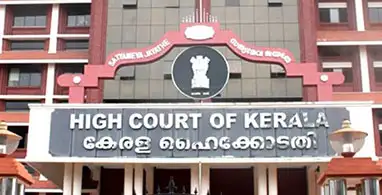HIGH COURT QUASHED AAR AND AAAR ORDER DEEMING MEDICAL SUPPLIES


High Court quashed AAR/ AAAR order deeming 'medical supplies' as 'composite supply' and remanded matter for fresh consideration:*
The Hon’ble HC, Karnataka in the matter of Abbott Healthcare Private Limited v. The Commissioner of State Tax Kerala & Ors. [W.P(C). No. 17012 OF 2019(B) dated January 7, 2020] quashed AAR and AAAR order holding that the placement of medical instruments to hospitals, laboratories etc., for use without any consideration, in the backdrop of an agreement providing for minimum purchase obligation of products like reagents, calibrators, disposables etc., constitutes a “composite supply”.
Abbott Healthcare Private Limited (“the Petitioner”) is engaged inter alia in the sale of pharmaceutical products, diagnostic kits etc. and it is registered under the GST in the State of Kerala. In the instant business model, it places its diagnostic instruments at the premises of unrelated hospitals, laboratories etc., for their use for a specified period without any consideration.
The Petitioner also enters into Reagent Supply and Instrument Use Agreements (“Agreement”) with various hospitals, laboratories etc., whereunder, the arrangement between the parties is for the supply of medical instruments to the hospital/laboratory concerned, for their use, without any consideration for a specified period and for the supply of specified quantities of reagents, calibrators, disposables etc., at the prices specified in the Agreement, through its distributors on payment of applicable GST. As per the Agreement, while the supply of instruments is by the Petitioner, the supply of reagents, calibrators and disposables are effected by its distributor, who purchases the said products from the Petitioner on principal to principal basis. When the distributor supplies the reagents, calibrators and disposables to the hospitals/laboratories concerned, the distributor discharges the applicable GST on the price charged for supply of the said products.
A consignment of instruments was being transported to a laboratory without any consideration, pursuant to the Agreement entered into between the parties, the same was seized by the Assistant State Tax Officer, Kozhikode, on the ground that the goods were not accompanied with a tax invoice but were being transported under a delivery challan.
AAR-
The placement of medical instruments to hospitals, laboratories etc., for use without any consideration, in the backdrop of an Agreement providing for minimum purchase obligation of products like reagents, calibrators, disposables etc., constitutes a “composite supply”. The principal supply in the said composite supply was of the transfer of right to use goods for any purpose.
Issue involved was that whether the provision of specified medical instruments by the Petitioner to unrelated parties like hospitals, labs, for use without any consideration, constitutes a “supply” or whether it constitutes “movement of goods otherwise than by way of supply” as per provisions of the Central Goods and Services Tax Act, 2017 (“CGST Act”)/State Goods and Service Tax Act, 2017 (“SGST Act”)?
The Hon’ble HC, Karnataka in the W.P(C). No. 17012 OF 2019(B) dated January 7, 2020 held that there was no occasion for the AAR to go into the issue of whether the supply effected was a composite supply or not. Its findings on the said issue are at any rate legally untenable. The concept of enhancement of utility of the instrument through the supply of reagents/calibrators/disposables, while relevant for the purposes of valuation of the supply of instruments, cannot be imported into the concept of composite supply under the GST Act. For a supply to be a composite supply, it must answer to the definition of the term “composite supply” at the time of its supply.
A finding as regards composite supply must take into account supplies as effected at a given point in time on “as is where is” basis. In particular instances where the same taxable person effects a continuous supply of services coupled with periodic supplies of goods/services to be used in conjunction therewith, one could possibly view the periodic supply of goods/services as composite supplies along with the service that is continuously supplied over a period of time. These, however, are matters that will have to be decided based on the facts in a given case and not in the abstract as was done by the AAR.
The Court observed that the supplies are made by two different taxable persons. Although it could be argued that there is a relationship between the said persons that influences the valuation of the supply, the same does not take away from the fact that the supplies are made by two different taxable persons.
The two supplies do not answer to the description of being “naturally bundled and supplied in conjunction with each other in the ordinary course of business”. While they were not bundled together as a matter of fact, in the instant case, there is also no material to suggest that they are so bundled and supplied in conjunction with each other in “the ordinary course of business”. In fact, the business model followed by the Petitioner appeared to have held the field for a considerable period of time and would show that in the ordinary course of business, the supplies are not bundled.
· Quashed the order of AAR and AAAR and remanded back the matter to AAR for a fresh decision on the query raised before it by the Petitioner within six weeks from the date of receipt of a copy of the judgement of this case.

|
Essential LLP Registration Documents: A Complete Checklist for Entrepreneurs Author: Rahul Singh 04 Apr, 2024
|
Get inspired by these stories.